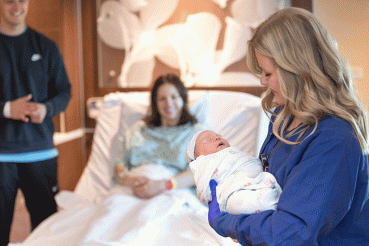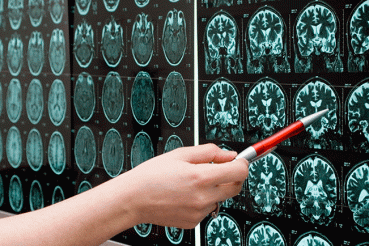Irene Turner never sought the limelight. Her name isn’t on a wall somewhere at Rush University. She spent her career lifting up other people and had no interest in standing on a pedestal herself. But even now, sixty years after she began working at the hospital that became Rush University Medical Center, so many of the programs and initiatives Rush students and employees enjoy have grown from seeds Irene Turner planted.
Born in Lithuania in 1921, Irene and her parents fled Russian oppression when she was two years old to settle in Boston. It’s there that she grew up, became a medical lab technician, and met her husband and some of the people who eventually led her to Rush.
All the while, her passion for the rights of the underdog was evident. While World War II raged, she worked in a factory that made ignition switches for tanks, and her coworkers selected her as the one to bring their grievances to management. Later, she became an organizer for the United Electrical Workers union and manned picket lines in places where labor disputes often became violent.
Vision for the underserved
In the early 1950s, Turner and her growing family moved to Chicago, and she took a leading role in the Committee to End Discrimination in Chicago Medical Institutions. At that time, many private hospitals refused to treat Black patients or employ Black physicians. Turner and her colleagues were instrumental in getting an ordinance passed that made it illegal for any patient to be refused admission to a Chicago hospital based on race.
Once she joined Rush in 1962 (it was known as Presbyterian-St. Luke’s Hospital then), she helped establish the Mile Square Health Center on the West Side, one of the first neighborhood public health facilities in the country and the prototype for similar centers across the nation. Her vision for the underserved became the foundation of what is now Rush’s anchor mission, and her activism lives on in our Rush Community Service Initiatives Program.
Turner’s powerful drive for equality and social justice never waned throughout her career. When violence broke out at the 1968 Democratic National Convention held on Chicago’s South Side, she was there to ensure protestors received medical aid.
She had a strong belief in the importance of medical education facilities. Turner even wrote to the Illinois state legislature about it, and this helped lead to the reopening of Rush Medical College, which had been closed for nearly 30 years. The reopened college merged with Presbyterian-St. Luke's Hospital in 1969 to become Rush-Presbyterian-St. Luke’s Medical Center, forming the foundation of what is now the Rush system.
'You are valued'
One of the loudest echoes of Turner’s legacy is her leadership in the Chicago Area Health and Medical Careers Program (CHAMPS). For 23 years, the program identified and prepared high school and college-aged men and women from underrepresented backgrounds for careers in health care. Through CHAMPS, Turner significantly increased the number of women and people of color at Rush and beyond.
All of these accomplishments were what I call Turner’s side hustle. Her main job was as a Rush researcher and demographer — one of Chicago’s most respected. She also served as medical student advisor, acting administrator of the Rush Cancer Center and assistant professor in the Department of Preventive Medicine.
In recognition of these many contributions, she received Rush’s highest honor, the James D. Campbell Award, in 1997.
Before I began this reflection, I spoke to a former student of the CHAMPS program about her memories of Irene Turner. She told me she decided to go to medical school later in life, and it was due in part to words Turner said to her: “Stop explaining away who you are or saying why you shouldn’t be here. Life dealt you a difficult deck, but you’ve stood up to the struggle. You belong. You are valued. You’re worthy.” The student said no one had ever spoken to her that way — and it made all the difference.




